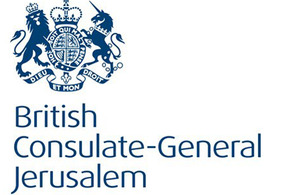Supporting stability and peace in the OPTs
The Conflict Prevention Pool (CPP) funds projects aiming to prevent and reduce conflict in selected geographical and thematic areas.

BCG
Conflict Prevention Pool was set up on 1 April 2008. It replaces the former Global Conflict Prevention Pool and Africa Conflict Prevention Pool. The CPP is run jointly by the Foreign & Commonwealth Office, Ministry of Defence and Department for International Development. It funds projects aiming to prevent and reduce conflict in selected geographical and thematic areas.
All activity under the CPP is targeted at achieving the UK’s overall intended outcome:
A global and regional reduction in conflict and its impact, through improved UK and international efforts to prevent, manage and resolve conflict, and to create the conditions required for effective state-building and economic development.
We will consider projects that promote the Middle East peace process and contributing to the following objectives:
-
to contribute to a more benign security environment for Israelis and Palestinians in order to improve the economy, reduce violence against both Israelis and Palestinians, improve the humanitarian situation in the Occupied Palestinian Territories and implement the Agreement on Movement and Access of December 2005
-
to prevent the establishment of “facts on the ground” which would prejudice a final status agreement between Israel and the Palestinians
-
to contribute to an environment more conducive for negotiations and co-operation between Israel and the Palestinians
-
to reduce the drivers of conflict in the Occupied Palestinian Territories
The British Consulate General in Jerusalem has supported the work of international and Palestinian NGOs on a number of programmes supporting our objectives including:
-
human rights, to improve the quality and relevance of legal and human rights services provided to citizens in East Jerusalem
-
increase the safety of the Palestinians and reduce conflict through raising awareness among the Palestinian community on the negative effects of mishandling small arms
-
using media to boost moderate voices and stimulate democratic public debate in support to peace, and to increase the level of Palestinian and wider Arab knowledge and understanding about Israel (society, culture, economy, decision making processes and policies) through the provision of valid and objective information to influence their misperceptions
List of grantees FY 14/15
- HALO Trust, £ 250,000
The project aims to improve personal security and agricultural productivity with the Palestinian Territories, by clearing mine fields and explosive remnants of war in the West Bank. It will also help increase trust and opportunity for a stable peace between the Israeli Government and the Palestinian Authority.
- Rabbis for Human Rights, £105,000
“Changing Facts on the Ground” – Preventing Displacement of Palestinian Communities in the South Hebron Hills. Providing safe and regular access for Palestinians to an increasing percentage of their land in the area. Recognition by the Israeli courts of Palestinian land ownership and the protection of Palestinian rights.
- British Support Team, £2.04 million
The project is aiming to support the Palestinian Ministry of Interior by providing effective technical assistance to enable security sector reform and development, in order to enable the PASF to deliver security and rule of law in the West Bank.
- EUPOL COPPS, £350,000
To provide an effective UK contribution to EU efforts to improve policing and the rule of law in Palestine.
- International Peace and Cooperation Center (IPCC), £200,000
It is designed to support projects in East Jerusalem that help Palestinians better understand and effectively use the Israeli planning laws, in order to gain planning permission - both retrospectively for existing homes and prospectively for new homes. Gaining retrospective planning permission legalises homes and so protects them from demolition.
- Terrestrial Jerusalem, £52,000
To systematically flag in advance and report settlement activities, their significance, impact, the trends they disclose, whether they have been reported publicly, and whether they have elicited previous responses from governments, and the substance of those responses.
- Jerusalem Community Advocacy Network, £187,000
This project will develop a network of ‘citizens’ advice bureaus’ in East Jerusalem to help Palestinians residents secure their legal rights and an equitable share of municipal resources.
- EUPOL COPPS, and UK MOJ: “Mentoring and Capacity Development Project – Developing and Delivering the Justice Vision”, £116,000
The project aims to strengthen human capacity at the Palestinian Ministry of Justice, notably of Ministers, senior executives, and middle management resulting in a more effective criminal justice system in which the Palestinian public will have increased confidence.